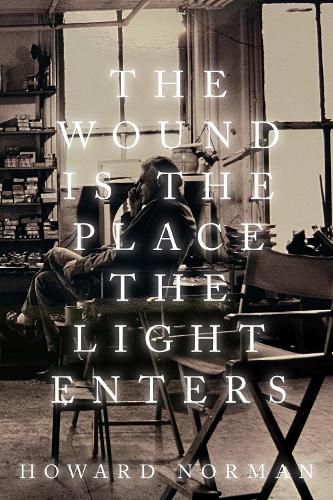Readings Newsletter
Become a Readings Member to make your shopping experience even easier.
Sign in or sign up for free!
You’re not far away from qualifying for FREE standard shipping within Australia
You’ve qualified for FREE standard shipping within Australia
The cart is loading…






The warmth of this book is sustained by friendship. More specifically, the novelist Howard Norman documents what he didn't know would be the final evening and morning he spent with his dear friend Jake Berthot. In that single evening is the entire world of their relationship and the story of a unique artistic figure of the twentieth century.
After the controversial exhibit of his ""Red Paintings,"" painter Jake Berthot (1939-2014) moved his studio from New York City to a small town upstate. There he began an exploration of landscape - predominantly trees - which he drew and painted almost exclusively until his death from leukemia at age 75. Berthot was often referred to as a ""painter's painter,"" a description he disliked.
After tragedy struck his friend Norman's family, Berthot gave them a collection of dialogues and poems by the 13th century Sufi mystic poet Rumi. One of the poems reads:
I said: What about my heart?
He said: Tell me what you hold inside it
I said: Pain and sorrow.
He said: Stay with it. The wound is the place the light enters you.
Norman and Berthot often discussed and debated these ""spiritual works,"" as well as any number of other subjects. At Berthot's own prompting, Norman recorded some of their conversations and also kept detailed journals of his many visits.
A ""pastiche of inimitable farewells"" (W. S. Merwin), this story has all the intimate forms of memory: letters, conversation, and anecdote, woven together in a narratively inventive, courageous, and deeply affecting portrait of friendship.
$9.00 standard shipping within Australia
FREE standard shipping within Australia for orders over $100.00
Express & International shipping calculated at checkout
The warmth of this book is sustained by friendship. More specifically, the novelist Howard Norman documents what he didn't know would be the final evening and morning he spent with his dear friend Jake Berthot. In that single evening is the entire world of their relationship and the story of a unique artistic figure of the twentieth century.
After the controversial exhibit of his ""Red Paintings,"" painter Jake Berthot (1939-2014) moved his studio from New York City to a small town upstate. There he began an exploration of landscape - predominantly trees - which he drew and painted almost exclusively until his death from leukemia at age 75. Berthot was often referred to as a ""painter's painter,"" a description he disliked.
After tragedy struck his friend Norman's family, Berthot gave them a collection of dialogues and poems by the 13th century Sufi mystic poet Rumi. One of the poems reads:
I said: What about my heart?
He said: Tell me what you hold inside it
I said: Pain and sorrow.
He said: Stay with it. The wound is the place the light enters you.
Norman and Berthot often discussed and debated these ""spiritual works,"" as well as any number of other subjects. At Berthot's own prompting, Norman recorded some of their conversations and also kept detailed journals of his many visits.
A ""pastiche of inimitable farewells"" (W. S. Merwin), this story has all the intimate forms of memory: letters, conversation, and anecdote, woven together in a narratively inventive, courageous, and deeply affecting portrait of friendship.